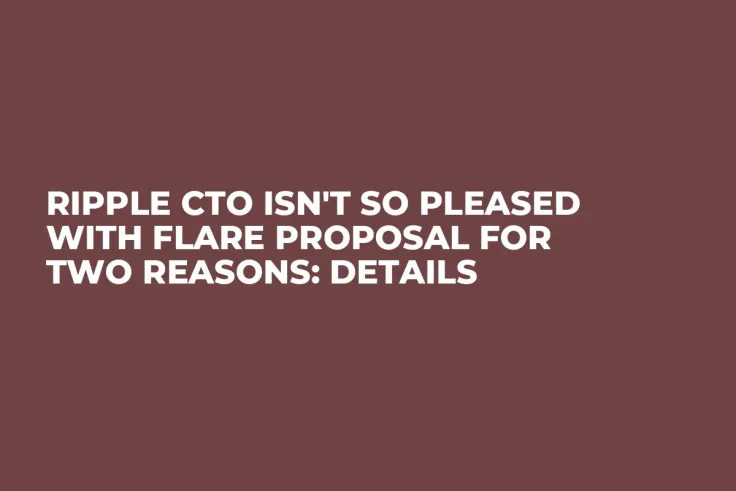
Disclaimer: The opinions expressed by our writers are their own and do not represent the views of U.Today. The financial and market information provided on U.Today is intended for informational purposes only. U.Today is not liable for any financial losses incurred while trading cryptocurrencies. Conduct your own research by contacting financial experts before making any investment decisions. We believe that all content is accurate as of the date of publication, but certain offers mentioned may no longer be available.
Ripple CTO David Schwartz seems not to be so pleased with the Flare governance proposal (FIP01) which, if passed, would consist of a set of changes that would impact the distribution and inflation of the Flare blockchain's native token.
There are two things. One is that it gives XRP holders only 15% of what they were promised. The other is that it builds in a lot of monetary expansion that doesn't seem to benefit anyone.
— David "JoelKatz" Schwartz (@JoelKatz) January 17, 2023
He cites two reasons: the first is that it gives XRP holders only 15% of what they were promised. Second, it builds in a lot of monetary expansion that does not seem to benefit anyone.
On Jan. 9, Flare had its token airdrop, which marks the first 15% of the overall public token distribution; the Flare (FLR) tokens were distributed to eligible users at a ratio of 1 XRP to 0.1511 FLR. The remaining 85% will be allocated over 36 months.
FIP01 proposal
Over the weekend, Flare Network announced that the threshold for the vote on FIP01 had been reached. Hugo Philion, CEO of Flare, highlighted one of FIP01's demerits for its 2020 snapshot participants: FLR must be wrapped to receive full and final distribution. Also, depending on participation, users may end up with less than expected under the 2020 snapshot.
However, the advantages include removing the risk associated with relying on exchanges.
As reported earlier by U.Today, David Schwartz criticized the Flare airdrop, claiming that there was no reason to hold FLR tokens and wait to get additional airdrops under the present conditions.
He claims that the new rules represent "a very strange decision," implying that Flare simply leveraged the XRP community as a growth tool before eroding its commitment.
 Dan Burgin
Dan Burgin Vladislav Sopov
Vladislav Sopov